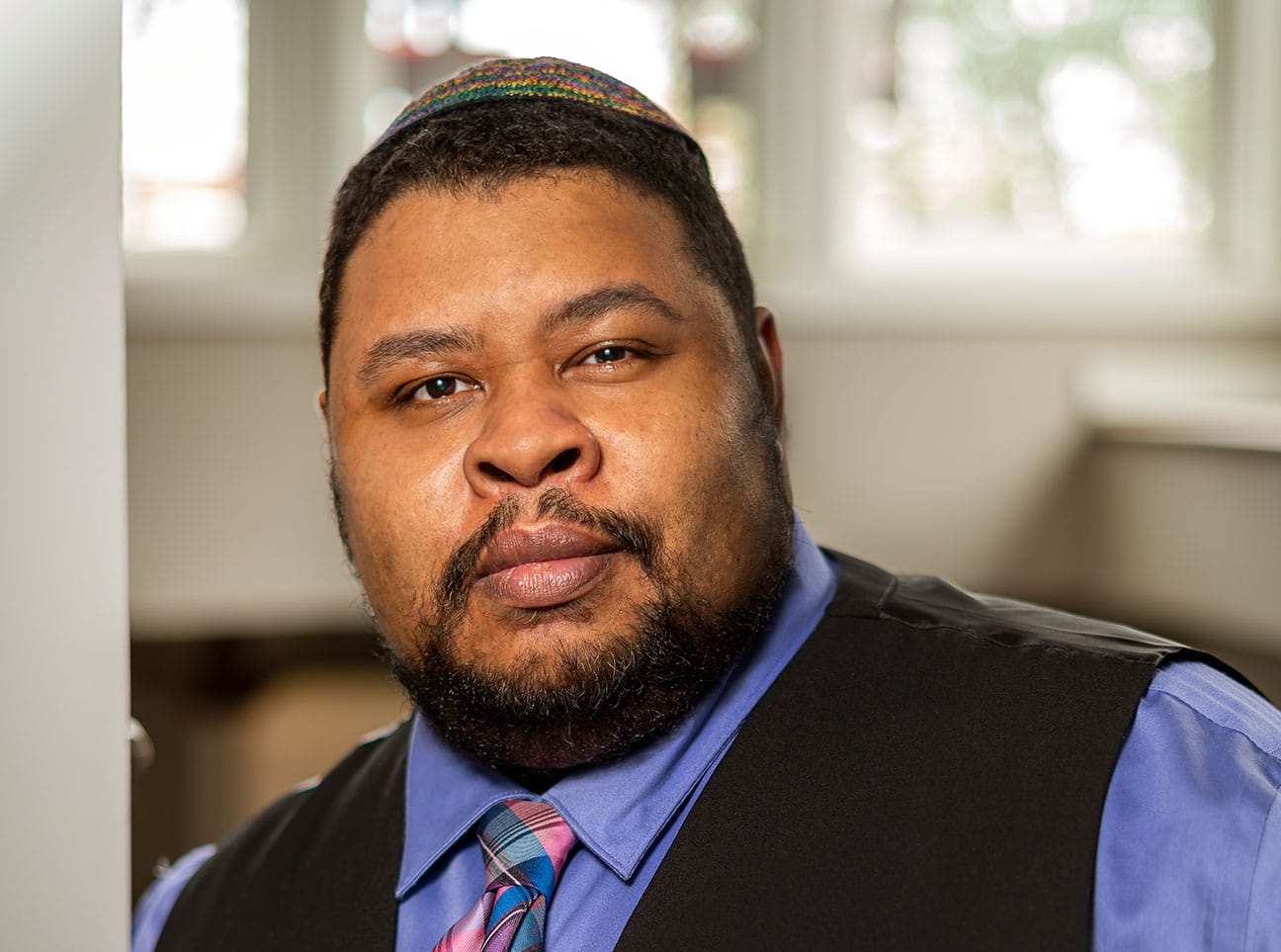 Photo by Noah Fecks
Photo by Noah Fecks Award-winning culinary historian, food writer and chef Michael W. Twitty loves exploring and sharing cultures through food.
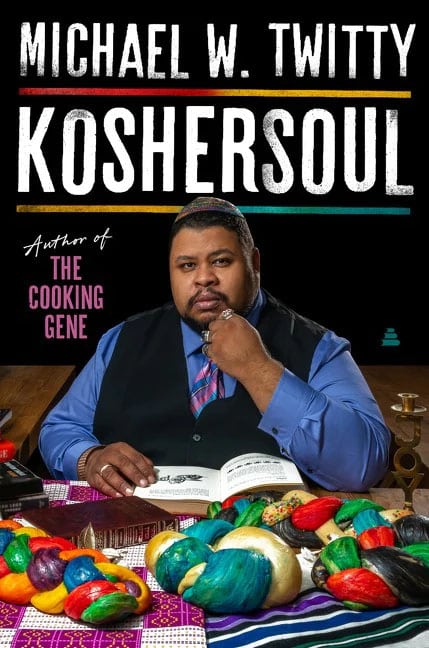 In his latest book, “Koshersoul: The Faith and Food Journey of an African American Jew,” Twitty melds the food and traditions of two of the most distinctive cultures, his culture. “Koshersoul,” which also includes recipes, received the 2023 National Jewish Book Award.
In his latest book, “Koshersoul: The Faith and Food Journey of an African American Jew,” Twitty melds the food and traditions of two of the most distinctive cultures, his culture. “Koshersoul,” which also includes recipes, received the 2023 National Jewish Book Award.
Twitty, who has been part of this community for more than 20 years, says his narrative is having a continuing relationship with Judaism, while honoring his African American roots.
“In making my own brand of kashrut by way of “Koshersoul,” etc., I enjoy the idea of having food from different backgrounds,” Twitty said. “There’s not a continent that’s inhabited where the two groups have not made an impact.” This includes China, South Asia and Japan.
“The doors [of] the entire world are open to me,” he said.
Twitty explains the three parts to every food tradition.
“What the food means to you, how the ingredient plays on other cultures or dishes, even a similar dish,” he said. “[And] also its origin story.”
While people are born with their own food traditions, they also grow up with traditions to them; from neighbors or friends.
Twitty’s first book, “The Cooking Gene: A Journey Through African American Culinary History in the Old South,” won the 2018 James Beard Award for best writing as well as book of the year, making him the first Black author to do so. The next one, “Rice,” is a Savor the South cookbook from The University of North Carolina Press.
Twitty actually grew up cooking.
“It wasn’t just cooking,” he said. “It was the history, the story about the people behind the food, their inspirations. All of that really led up to me going into writing about food.”
Twitty grew up in D.C. in a home with lots of extended family, so he had to learn how to entertain himself as the only kid around eight adults; he and his mother lived with his grandparents, uncles and other relatives; plus his father and paternal grandmother lived nearby.
“Especially back then, when we didn’t have phones and tablets, you really did have to learn your way through everything, he said. “The kitchen was a place I hung out a lot.
“The kitchen wasn’t just a kitchen; it was where my grandmother babysat me [and] my mom’s most important room in the household,” he said.
When Twitty was young, he watched a lot of food shows on PBS. This was pre Food Network. Everyone from Martin Yan to the Frugal Gourmet contributed to his education.
“My mother had me sit down and write down [maybe 150] culinary terms,” he said. “By the time I was seven, I knew what it meant to chiffonade, what gazpacho was, all these other things.”
Other early food influences, Twitty explains, were growing up in a multicultural community.
“Our neighborhoods in that part of Maryland were very Latin, very Jewish, very Black … from across the diaspora: African American,” he said. “And it was cool to grow up with Greek kids, Lebanese kids, Italian kids and Chinese American kids, and have the entire spectrum in front of you.”
Twitty would go over to his friends’ houses and learn their customs and eat their food. And then he would go look it up in the school library.
“You learned your way through the globe based on the smell of someone else’s house,” he said.
While Twitty loves and appreciates food from other cultures, he says, “People need to understand there is a fine line between appropriation and amplification. [And] a distinction to be made between actual theft … and the real and authentic adaptation that’s done when we appreciate things.”
He adds, “How can I express my song, my poetry, my truth through this food or ingredient? That’s what I hope to teach people through my books and through my writings and talks.”
Follow @TheCookingGene on Instagram and MichaelWTwitty on Facebook and learn more at KoshersoulBook.com.
For the full conversation, listen to the podcast:
Debra Eckerling is a writer for the Jewish Journal and the host of “Taste Buds with Deb.” Subscribe on YouTube or your favorite podcast platform. Email Debra: tastebuds@jewishjournal.com.








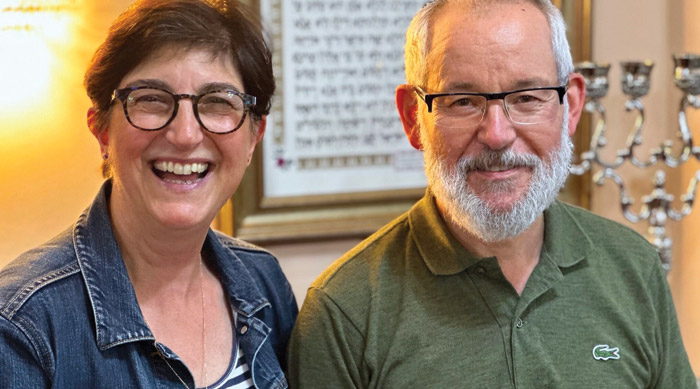


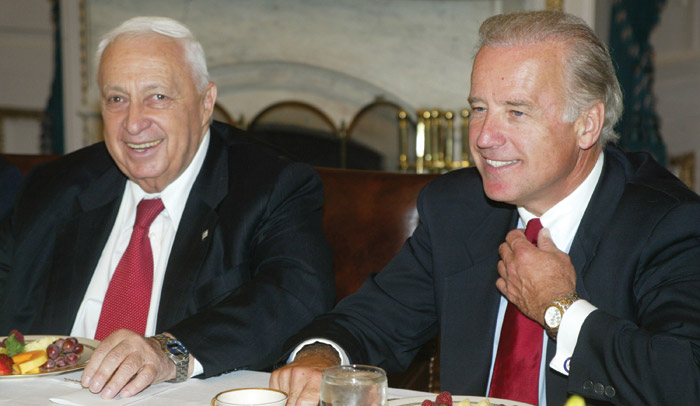
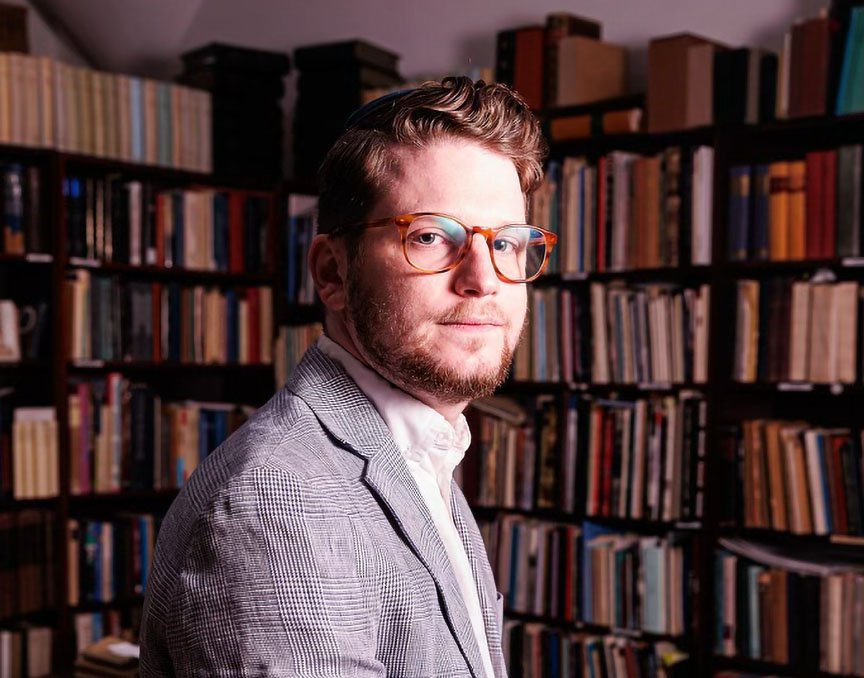

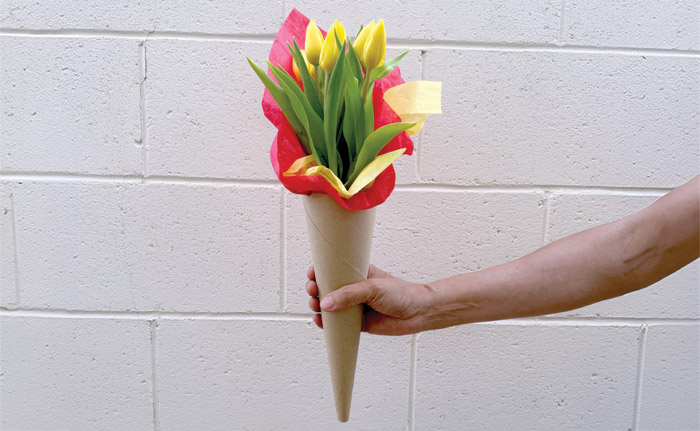






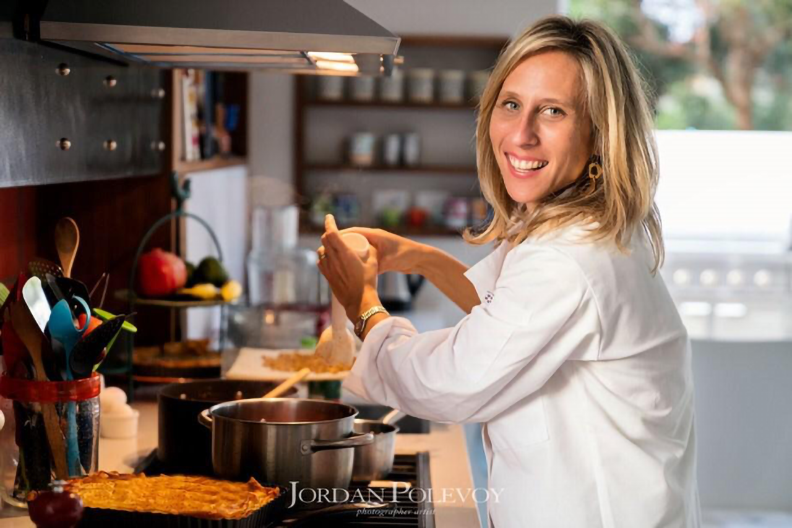
 More news and opinions than at a Shabbat dinner, right in your inbox.
More news and opinions than at a Shabbat dinner, right in your inbox.